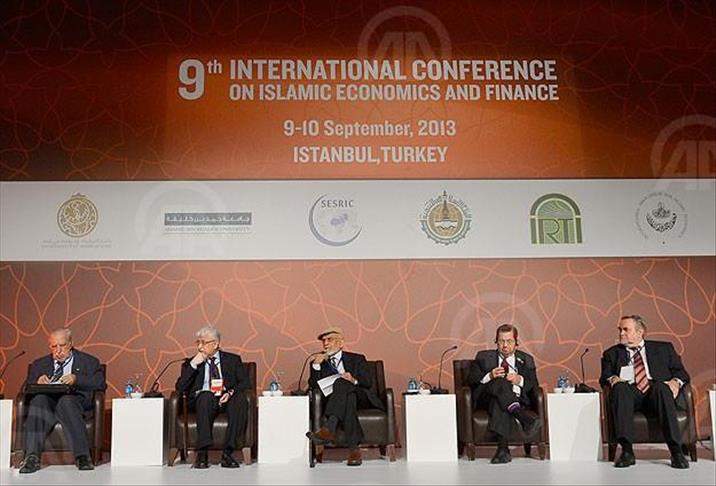
ISTANBUL
Mohamed Ariff, Professor of Finance at Australia’s Bond University, has said Islamic banking was expanding slowly in the world because of Islamaphobia.
Ariff told AA correspondents on Tuesday that three major principles of Islamic banking could save the world from the devastating economic crisis which caused the GDP of 60 countries, mostly developed, to drop by 780 billion dollars, while reducing the world economy’s growth momentum by half since April 2007.
“The West developed a poisoned product which is collateralized debt obligation (CDO), and spread it to whole world. However in Islamic banking, you can’t engage in what is called dangerous derivative, a dangerous financial instrument which has high risk of failure to be licensed, under Islamic Sharia financial law.”
For example Islamic Sharia would not permit the licensing of such products as those used by the conventional banks, said Ariff while adding, “If this kind of strict discipline applied by conventional banks, the financial crisis would not have been so severe, you would not have such a catastrophe.”
“If you don’t own it, don’t borrow it”
Ariff also explained that according to Sharia, “If you don’t own an asset, you can’t borrow it.”
“Under Islamic loan contracting, you can’t have more than 100 percent of your assets,” added Ariff, presenting Australian Volcom Clothing as an example: “Volcom was borrowing hundreds and tens of billions of dollars, but their total assets were only 43 billion. So Volcom and all those Western companies would have been prevented from bankruptcy.”
Ariff explained that the third principle in Islamic banking was the prohibition of excessive interest rates, emphasizing that if the entire world had abided by these three principles, such a severe economic crisis would not have occured.
Islamaphobia an obstacle before Islamic finance expansion
Ariff said Islamic banking was expanding slowly in the world because of Islamaphobia.
“It may take 50 years. We started in 1963 with opening the first bank, now we have around 500 institutions with 2-3 trillion dollars of assets. We will make this grow, but slowly.”
Ariff noted that Muslim countries like Turkey, Indonesia and Saudi Arabia as members of G-20 were pushing for some Islamic banking principles, and thus several Western countries had started to say that the derivative should not be traded orx if tradedx must be brought to transparent platform.
“During Wall Street demonstration, one group said: ‘Do what the Muslims are doing for financial transaction’, so people are becoming aware.”
Turkey’s success not because of Islamic finance
Asked about Turkey’s economic performance, Ariff said since Turkey signed the Customs Union in 1996, Turkey was doing very well in terms of its economic performance and democratic institutions.
“I do not think that Turkey was affected less by the global crisis thanks to the Islamic capital. Islamic banks have just started in Turkey.”
Ariff added that as the EU was predicted to overcome the crisis, Turkey’s economy would grow more because two were tied to each other.
“Turkey has given leadership to the Muslim world in the past, and can do it again”: M. Kabir Hassan
M. Kabir Hassan, Proffessor of finance at the University of New Orleans in the US, told AA that after the world economic crisis, all policy makers had started thinking about how to modify the conventional banking system, and looked at Islamic banking as an alternative.
Asked about the impact on Islamic finance of the political crisis in the Middle East, Hassan indicated it depends on how the crisis would end.
“For example in Tunisia, Algeria, Libya regulations are getting more and more into Islamic finance, but I am not sure about Syria and Egypt,” said Hassan, adding, “Even in the case of Turkey ten years ago, Islamic finance was under a lot of restrictions but since the political situation has changed, at least people’s interest in it is growing.”
Hassan pointed out that Turkey was a model for the Islamic world with its functioning democracy and growing economy.
“Turkey has given leadership to the Muslim world in the past, and can do it again.”
Asked what more should be done to expand Islamic finance in the world, Hassan said, “the Islamic world is doing a lot really, they are trying to harmonize the regulations, working on product development, building educational institutions, coming up with such programs. I am very hopeful.”


